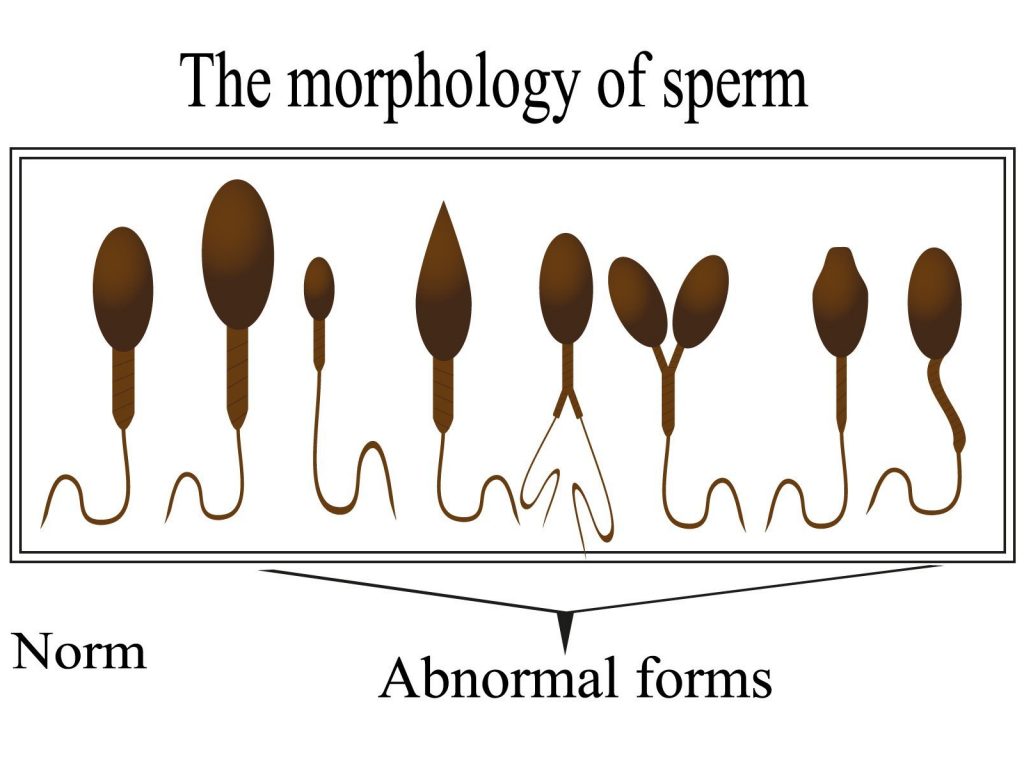Definition of Normal Sperm Morphology
Morphology simply refers to the shape of the sperm. When a sperm sample is produced, part of the sample is prepared to allow easy visualisation of sperm structure so that the proportion of normal sperm, and those falling into tightly defined morphological groups may be counted. It is exactly the same process whether the sample is produced for a semen analysis or if it is to be used as part of an IVF or IUI cycle.
The World Health Organisation (WHO) lay down strict morphological criteria defining the various sperm defects and these are usually simplified for reporting as the percentage of sperm exhibiting head, midpiece or tail defects. The effect of this is that quite often only a very small proportion of sperm are categorised as normal. In fact a semen sample is considered morphologically normal if 4% of the sperm fulfil the normal criteria. Put another way, a sample may exhibit 96% abnormal morphology and still be within the normal range.

